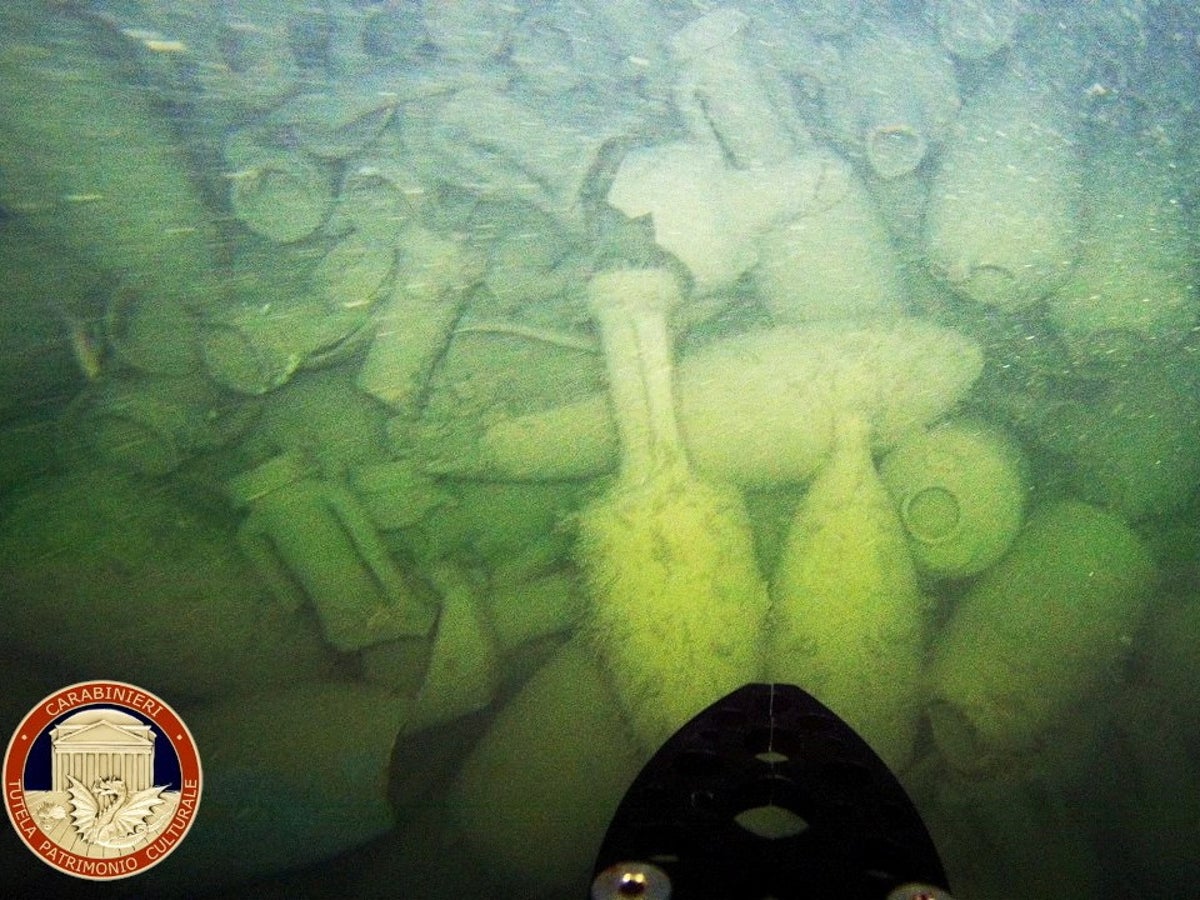
The wreck of an ancient Roman cargo ship believed to be more than 2,000 years old has been found off the coast of Italy.
The ship was located off the port of Civitavecchia, about 50 miles (80 kilometres) northwest of the Italian capital, on a sandy seabed at a depth of about 160 metres (525ft). It was discovered by the arts squad of Italy's Carabinieri police – who are tasked with protecting Italy's cultural heritage.
The vessel, estimated to be more than 20 metres long and dating from the first or second century BC, was carrying hundreds of amphorae – a type of Roman jar – that were mostly found intact. It is not known what the jars would have been used for, but amphorae were used to transport goods such as wine and olive oil.
“The exceptional discovery is an important example of the shipwreck of a Roman ship facing the perils of the sea in an attempt to reach the coast, and bears witness to old maritime trading routes,” the Carabinieri said, with police working to secure and study the site.
The relic was located and filmed using a remotely operated robot, the Carabinieri said. It was not immediately clear whether any attempt would be made to recover it or its cargo from the bottom of the sea.
The waters of the Mediterranean are believed to be teeming with such wrecks, with a number having been found in recent years around Italy. In 2021, a Roman vessel dating back to the second century BC was discovered off the coast of Palermo, about 90 metres deep. It carried a significant number of wine amphorae.
Valeria Li Vigni, the then director of the Soprintendenza del Mare, the government agency that oversees underwater cultural heritage in Sicily, said at the time: “The Mediterranean continually gives us precious elements for the reconstruction of our history.”
In 2018, a Greek merchant ship that experts dated back 2,400 years was found off the Bulgarian coast in the Black Sea. The 23 metre-long vessel was found 2,000 metres below the surface.
In the wake of that discovery, Helen Farr of the British-Bulgarian expedition team told the BBC: “It’s like another world. It's when the ROV [remote operated vehicle] drops down through the water column and you see this ship appear in the light at the bottom so perfectly preserved it feels like you step back in time.”
Reuters contributed to this report







